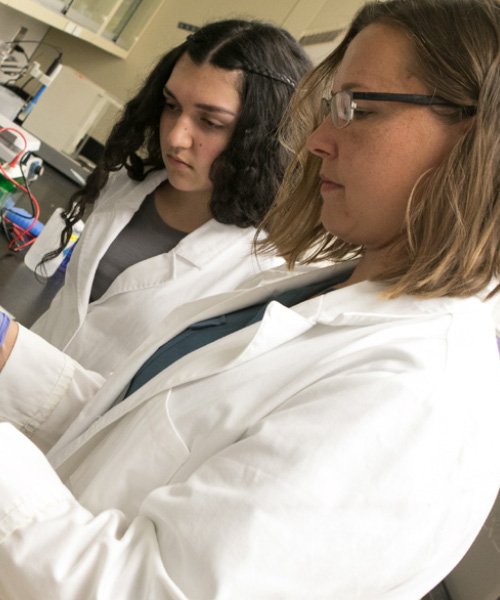
Superbugs appear not only in science fiction. Last year a bacterial infection killed a Nevada woman because it was resistant to every antibiotic available in the U.S. Although not so long ago they were easily treatable, a number of infections are no longer curable by any antibiotics. Bacteria have figured out how to evade antibiotics that used to kill them.
“New classes of antibiotics are urgently needed, as bacteria such as tuberculosis and MRSA (an antibiotic-resistant staph infection) are becoming resistant to everything we have available now,” said Dr. Katherine Hoffmann, a Cal Lutheran University professor of analytical chemistry. “Without antibiotics, infections could become life-threatening, which is why it’s important to keep developing new drugs.”
Hoffman and Jason Kingsbury, a CLU organic chemistry assistant professor, were recently awarded a $195,000 National Science Foundation grant to train undergraduates in the use of cutting-edge strategies, including isothermal titration calorimetry — in which Hoffmann is a pioneer — to stop bacteria from mushrooming into fatal potency.